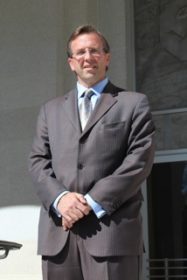
California’s Constitution in Article IV, Section 7, deals primarily with the proceedings of the houses and committees of the California Legislature. For example, in Section 7c, “The proceedings of each house and the committees thereof shall be open and public.” Moreover, in that section, “The right to attend open and public proceedings includes the right of any person to record by audio or video means any and all parts of the proceedings and to broadcast or otherwise transmit them.”
The Legislature must provide audio/visual recordings to be made of all proceedings in their entirety and make these recordings public through the internet and make the proceedings public within 24 hours after the proceedings have been recessed or adjourned for that particular day. They also have to maintain an archive of these recordings which must be accessible to the public through the internet and downloadable for a period of no less than 20 years.
Despite these rules requiring the Legislature meet in public, there are certain specific reasons that the Legislature may meet in closed session, or private. Additionally, should the Legislature meet in closed session, the Legislature must provide reasonable notice of the closed session to the public and state the purpose of the closed session. The reasons that the Legislature may meet in private are:
- To consider the appointment, employment, evaluation of performance or dismissal of a public employee; to consider or hear complaints or charges brought against a member of the Legislature, other public officer, or employee; or to establish the classification or compensation of an employee of the Legislature.
- To consider matters affecting the safety and security of members of the Legislature, or its employees, or the safety of any buildings and grounds used by the Legislature.
- To confer with or receive advice from its legal counsel regarding pending or reasonably anticipated, or whether to initiate litigation when discussion in open session would not protect the interests of the house or committee regarding that litigation.
- A caucus – which is comprised of the members of the same political party – of members of the Senate, members of the Assembly, or the members of both houses.
You can find the transcript of today’s podcast here.
